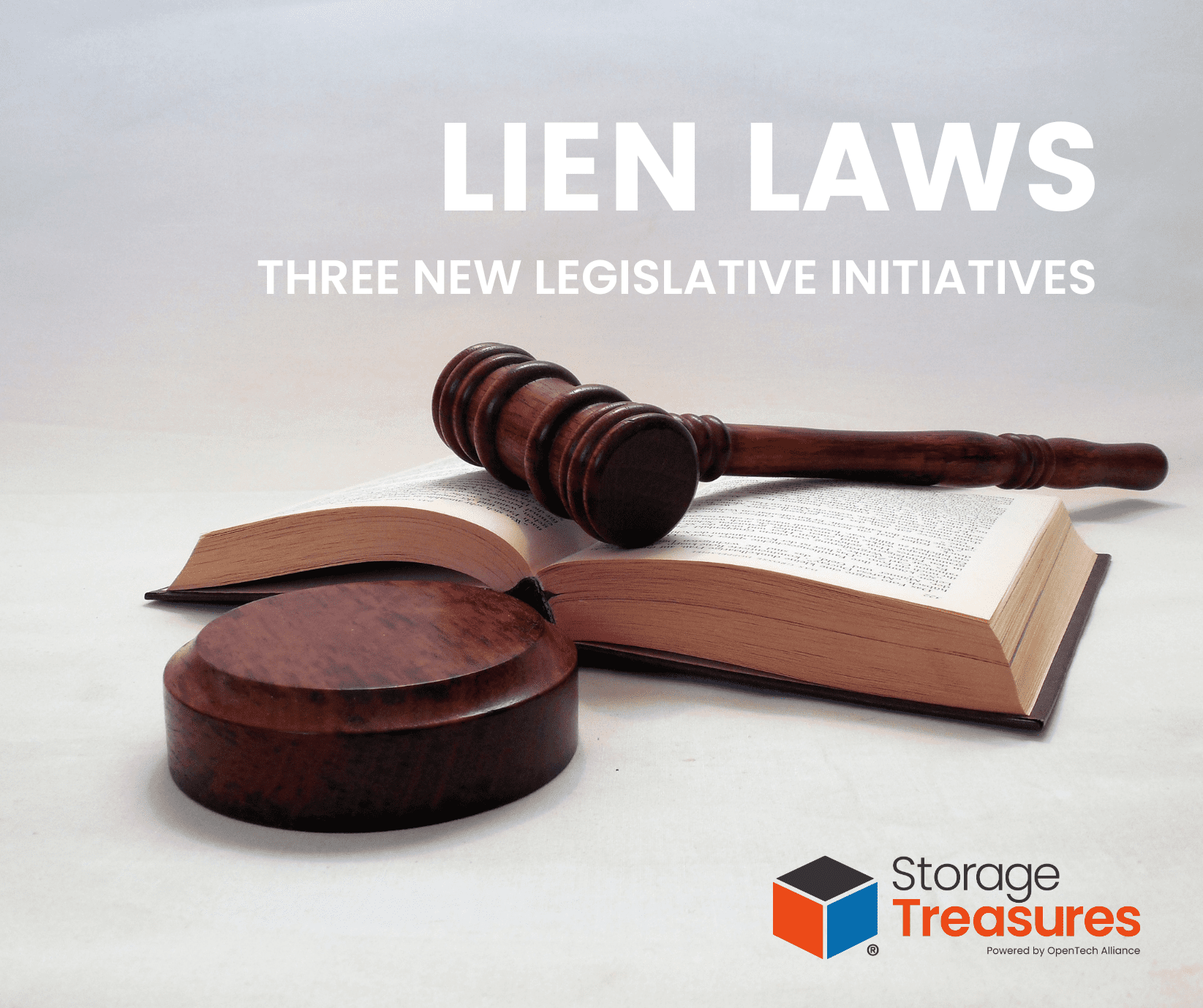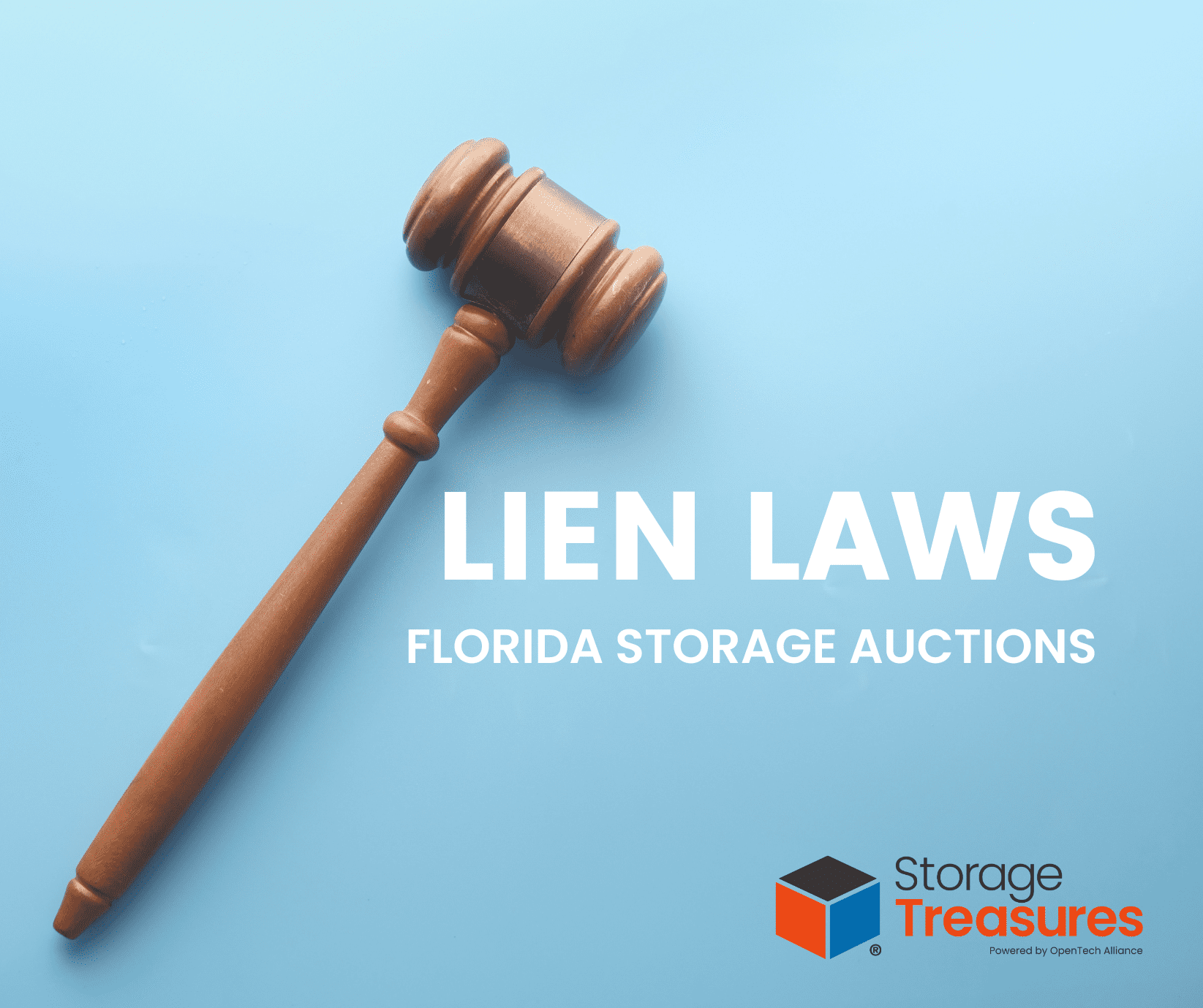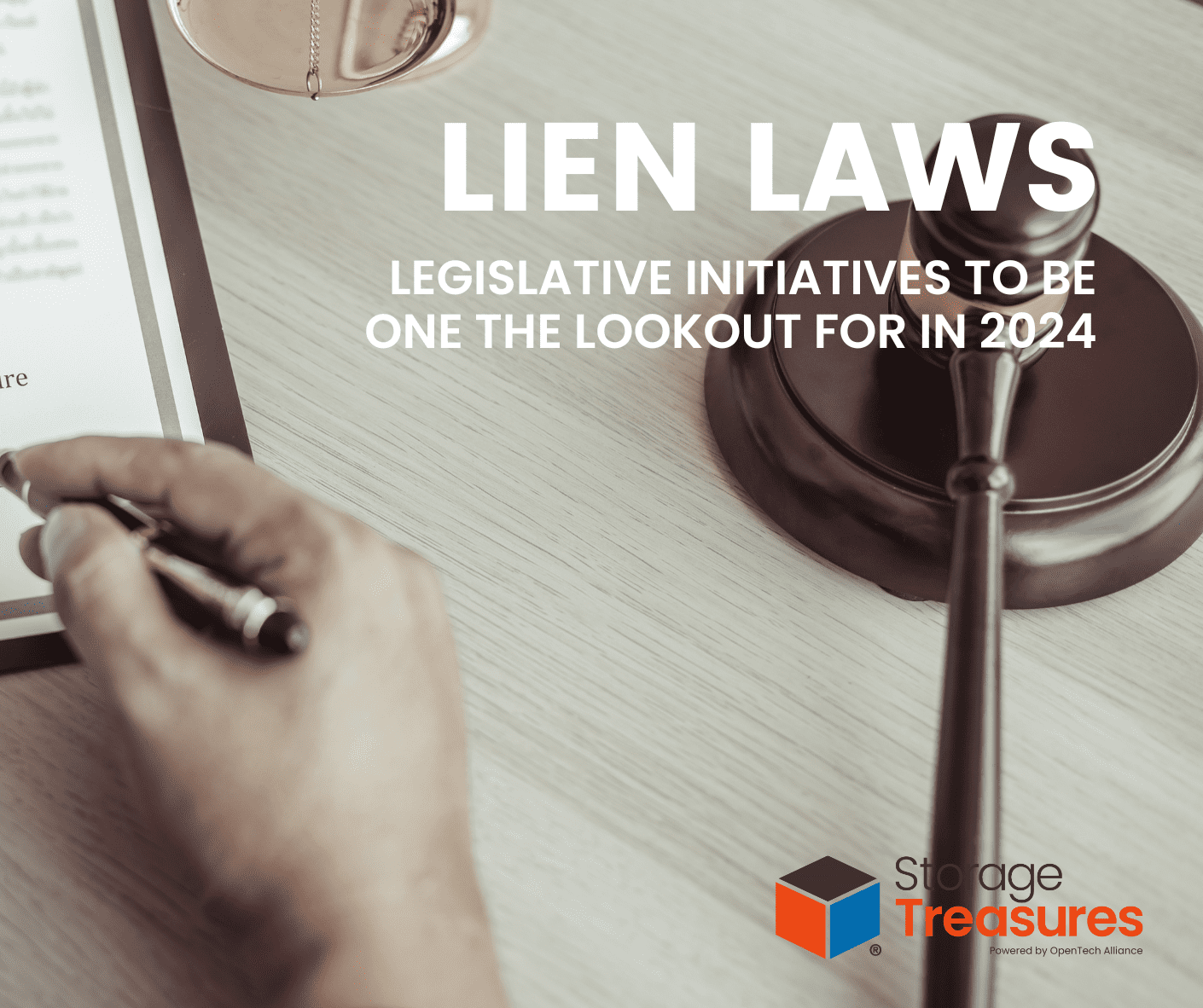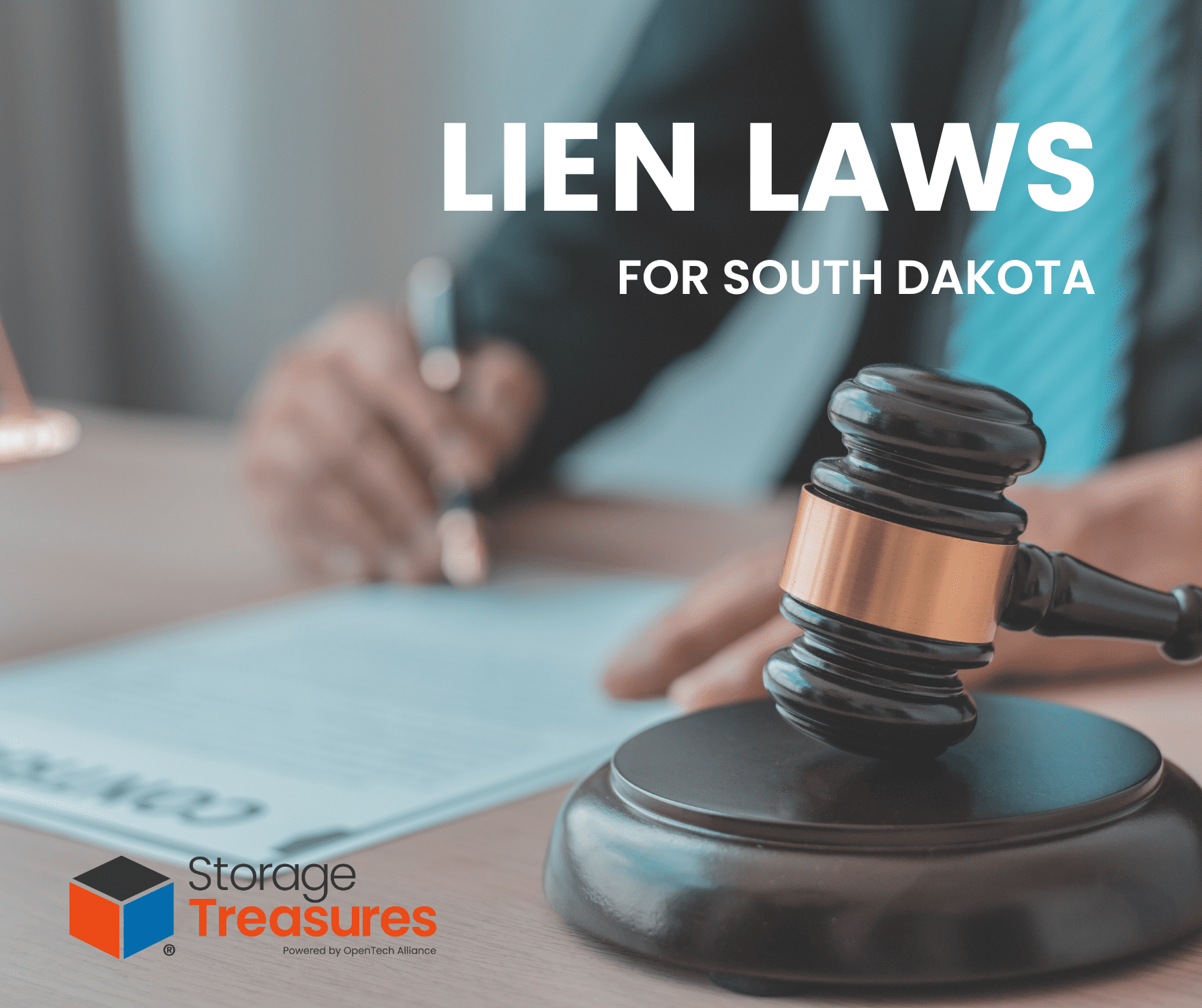Big Changes Are Coming to Self Storage Legislation
Most self storage industry operators know that the Self Storage Association (SSA) and their state associations have been lobbying legislatures for years to improve self storage legislation enforcement processes. Most states now allow email communication instead of certified mail, and many states are moving away from requiring physical newspaper advertisements. In addition to these ongoing efforts, the SSA has introduced three new initiatives in 2024 to help ease the difficulty of self storage lien enforcement. Non-monetary default, electronic lease delivery, and unsigned rental agreement provisions address long-standing difficulties self-storage owners and operators have faced for many years.
Non-Monetary Default
The question is often asked, “If my rental agreement says I can do it, I can do it, right?” There is no clear-cut answer to that question. The only accurate answer is “maybe.” A well-written rental agreement is the foundation of your self-storage business, but any contract provisions can be struck down in court unless it is explicitly allowed by a statute. Similar to the expressed allowance of posting your auctions online, the SSA is fighting to find a way for you to legally terminate a rental agreement for tenants who are not in default.
A storage operator will not often want to force out a paying customer. However, it is possible to encounter circumstances that could harm your facility and the other tenants storing their property there. How do you remove a paying tenant? There are likely provisions in your rental agreement stating you can terminate the contract with 30 days’ notice, but how do you do that successfully? Your first thought is to look at your lien laws. Currently, you will not find any answers there. However, hopefully, we will soon see those stipulations added and passed into law.
Bills regarding non-monetary default have been passed and signed into law in Idaho, Utah, Virginia, and Kansas. The initiative has also passed both houses of the legislature in Georgia and is awaiting the Governor’s signature. A non-monetary default is currently moving through the California legislature and is waiting to be introduced in Ohio.
The contents of the bills vary by state, but all effectively allow operators to legally terminate a rental agreement without having to go to court through an eviction. Below are the proposed statute changes in Georgia.
(b) An occupant shall not use a self-service storage facility after the owner has delivered 171 written notice by hand delivery, verified mail, or email of the termination or nonrenewal 172 of the occupant’s rental agreement. Such notice shall provide the occupant with not less 173 than 14 days after delivery of such notice to remove all personal property from the 174 self-service storage facility. H. B. 934 – 7 – 24 LC 44 2535 175 (c) Prior to the occupant’s removal of all personal property from a self-service storage 176 facility pursuant to subsection (b) of this Code section, the owner may place reasonable 177 restrictions on the occupant’s use of the self-service storage facility, including denying 178 access to the self-service storage facility except for the occupant to remove personal 179 property during the owner’s normal business hours. The owner may dispose of any 180 personal property remaining at the self-service storage facility after the date provided in 181 the written notice pursuant to subsection (b) of this Code section.”
You can find the full text of the bill here.
Electronic Delivery and Acceptance of a Rental Agreement
Many operators are moving toward using paperless files and having their tenants sign their lease as electronic documents. Still, there is a lingering question of validity in an industry that has been slow to adopt technological advancements. Some legal precedents have been set regarding electronic logins and electronic signatures in many other industries nationwide. However, having that expressed permission to use electronic delivery is a valuable safeguard for storage operators.
Legislation concerning electronic delivery and acceptance of rental agreements has been passed and signed into law in Idaho, Kansas, and Virginia. A bill has been passed in Georgia and is expected to be signed by Governer Kemp. The new law in Kansas goes into effect as soon as it is recorded in the law books and would add a new definition to the statute for “Electronic Signature.”
“Electronic signature” means an electronic symbol or process that is attached to, or logically associated with, a rental agreement and executed or adopted by a person with an intent to accept, execute or amend the rental agreement.
Here is a link to Kansas House Bill 2545.
Unsigned Rental Agreements
Very little is more frustrating in self storage than a rental agreement without a signature. In the most basic terms, the lack of a signature means there is no contract or lien to enforce in the event of non-payment. Different solutions have been proposed to this problem over the years, but none are backed up by law. New efforts to outline what storage operators should do if a rental agreement is not signed are a game changer in an industry that experiences frequent ownership changes.
Legislation regarding unsigned rental agreements has been passed and signed into law in Idaho, Kansas, Utah, and Virginia and is pending the governor’s signature in Georgia. Virginia, SB 355, [Link: https://lis.virginia.gov/cgi-bin/legp604.exe?241+ful+SB355ER] adds the following language regarding unsigned rental agreements to the self-service storage statute.
A rental agreement may contain a provision regarding the effect of an unsigned rental agreement. Any such provision is binding only if it contains statements, in bold type, advising the occupant of the following:
- If the owner does not sign and deliver a written rental agreement signed and delivered to him by the occupant, acceptance of rent by the owner gives the rental agreement the same effect as if it had been signed and delivered by the owner; and
- If the occupant does not sign and deliver a written rental agreement, acceptance of possession or payment of rent gives the rental agreement the same effect as if it had been signed and delivered by the occupant, if the owner also sends the rental agreement electronically or to the occupant’s last known address.
The self-storage industry is experiencing rapid legislative changes this year. To find a link to each state’s lien statutes or to join one of our informative webinars, please visit our Help Center at https://help.storagetreasures.com/hc/en-us.








